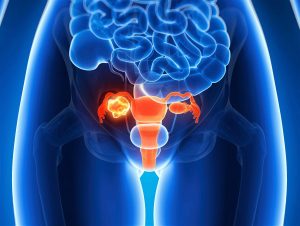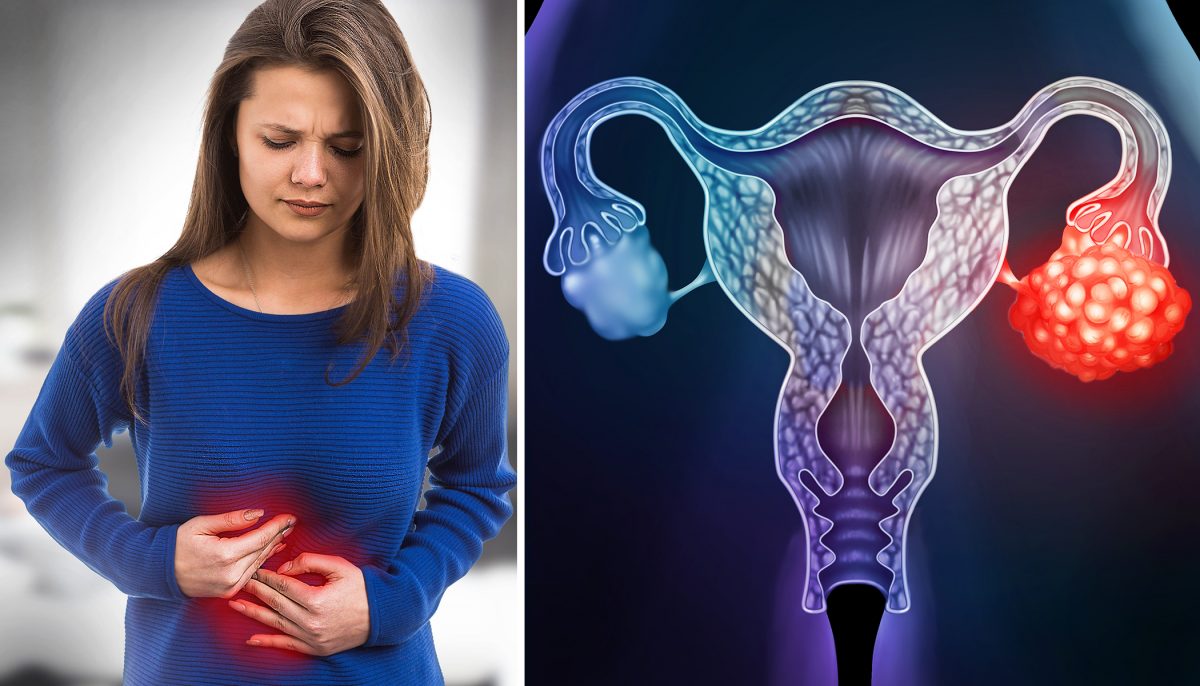Ovarian cancer is the most common cancer among the female population. The high percentage of mortality of this pathology is explained by the latent course of all tumor-like processes in these paired gonads. Therefore, the effectiveness of further therapy directly depends on early detection and timely treatment.
Unfortunately, the majority of women who do not go to a doctor for regular examination are often unaware of the development of a dangerous pathology to the last. Without a regular screening examination, it is impossible to recognize a tumor process in the ovaries. And when the clinical symptoms become obvious, irreversible, it is much more difficult to fight the disease.
Ovarian Cancer Symptoms
Due to the variety of morphological forms, the clinical picture of ovarian cancer is heterogeneous. There is simply no symptom that is 100% likely to indicate this pathology.
However, a number of manifestations should alert any woman. And even one of them is the reason for contacting a qualified specialist. Among them:
Feeling overeating, bloating, or bloating;
Frequent, intolerable urge to urinate;
Pain or heaviness in the pelvic area, lower back;
Flatulence;
Nausea;
Regular vomiting
An increase in the waist;
Decreased appetite
Sudden weight loss or gain
Soreness and discomfort during intercourse;
Pain over the bosom;
Ovarian cancer diagnostics.
Diagnosis of a tumor of this location is very difficult in the early stages of the disease. This is because ovarian cancer symptoms are not specific. Aggressive tumors do not have pronounced symptoms that distinguish them from benign neoplasms. That is why women who are at risk need regular monitoring.
These are patients with menstrual irregularities; suffering from infertility, chronic inflammatory diseases of the pelvic organs; as well as those who have been diagnosed with benign neoplasms in the ovaries.
Comprehensive examination of women with suspected ovarian cancer includes:
1. Examination on a gynecological chair.
2. Ultrasound of the pelvic organs with a transvaginal transducer.
3. CT and MRI of the abdominal cavity and small pelvis.
4. Research of the mammary glands.
5. Diagnosis of diseases of the gastrointestinal tract.
6. X-ray of the chest organs.
7. Examination of the kidneys and ureters using the chromocystoscopy method.
Ovarian cancer treatment
Treatment is carried out in specialized medical clinics by experienced oncologists.
The Edis Med Co medical center treats various oncological diseases, including ovarian cancer, using modern non-toxic therapies.
Comprehensive treatment includes:
1. Chemotherapy – with the use of drugs that destroy tumor cells.
2. Hormone therapy – for the correction of endocrine disorders that provoke the development of the tumor process;
3. Radiation therapy https://en.wikipedia.org/wiki/Radiation_therapy – tumor irradiation with a directed beam of nuclear particles
An important component of complex treatment is photodynamic therapy, based on the use of substances that can selectively accumulate in atypical cells.
